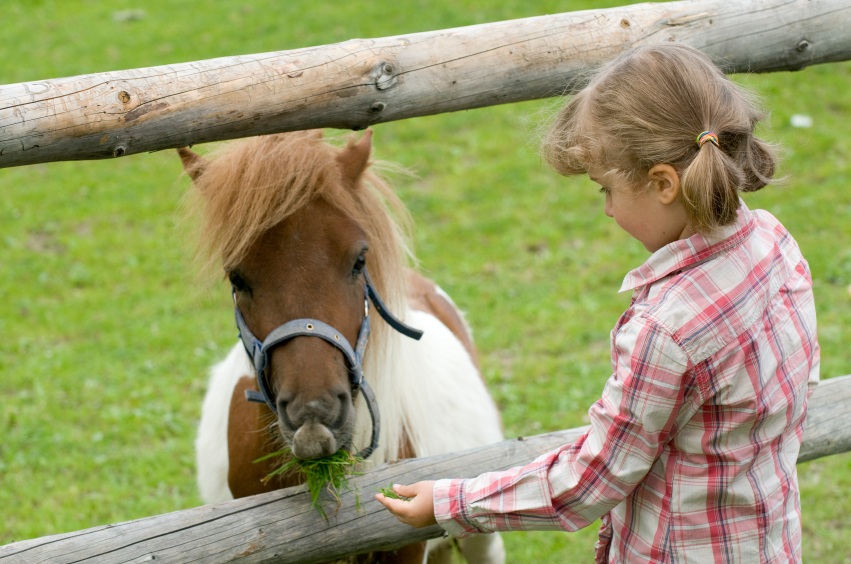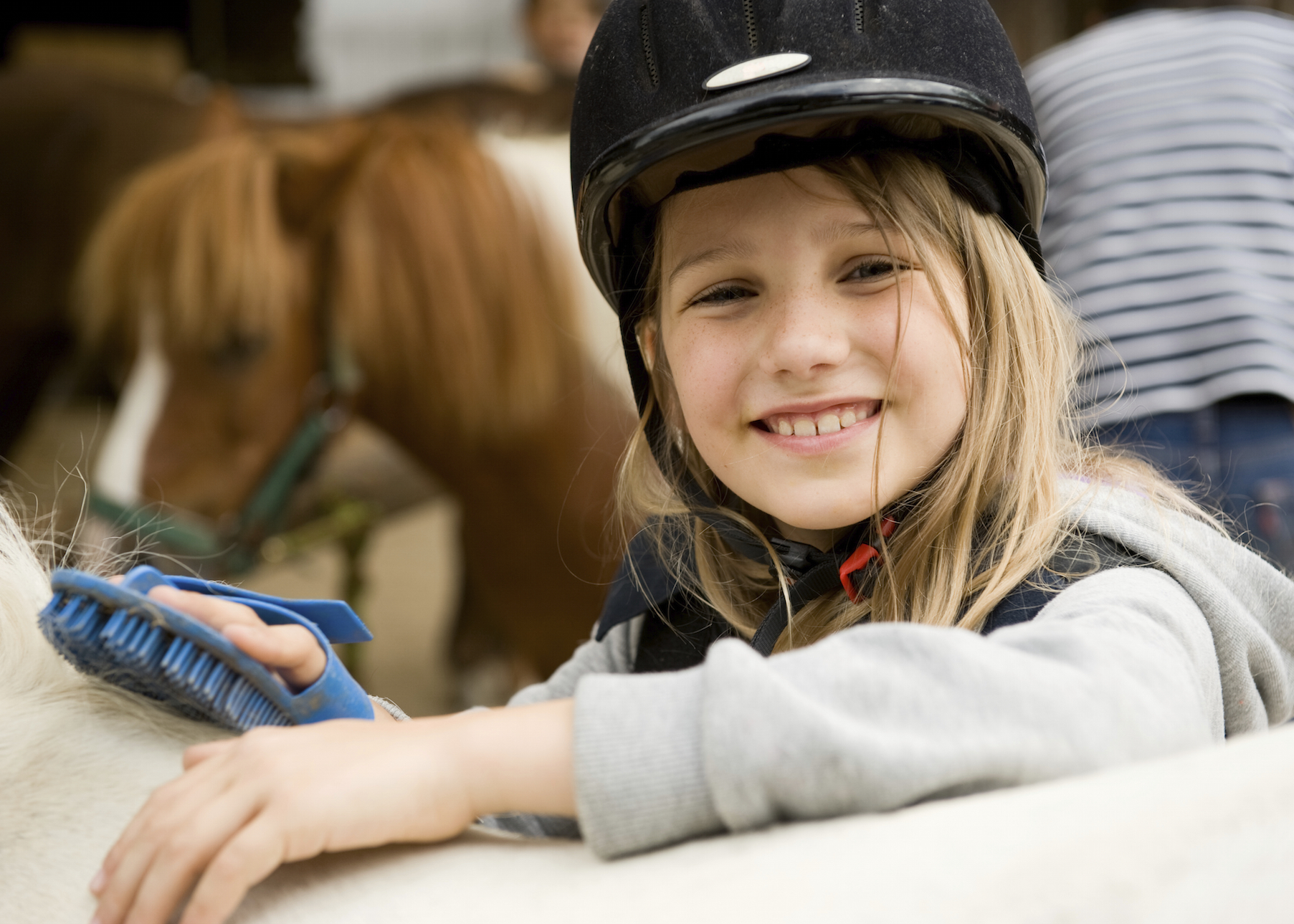This week we’ll look at unmounted activities to keep your campers active and engaged during their week of camp. I want to start out by recommending that you break up each day of camp into two parts, and spend half of the day riding, and half of the day on unmounted activities. Depending on the number of campers you have, you can have the campers split into two groups and have one group ride before lunch and one group ride after lunch. If you do this, make sure to alternate which group rides first every day.
Appropriateness of the unmounted activities depends on the age and size of your campers. These activities are appropriate for younger or smaller children:
Coloring Pages: Horse or farm themed coloring pages are a great way to keep kids busy at the beginning of the day while they’re waiting for all of the campers to arrive, or while they’re waiting to be picked up. You can find a lot of free downloads online.
Group Grooming: A great way to teach campers how to groom is to groom a big gentle horse as a group on your first day.
Feeding: I like to have campers help feed their horses hay or grain. Flakes of hay can be too heavy and awkward for small hands, but scooping grain is usually a big hit. Most kids love to help take care of their horse or pony. Just make sure to not feed directly after riding or when the horses are hot and sweaty.
Filling Water Buckets: Scrubbing and filling water buckets and troughs is a great activity for hot days.
Bathing a Horse: This is also great for hot days, and bubbles and suds are always fun!
For older or bigger campers, you could also use some of the following activities:
Stall or Paddock Cleaning: This is a great thing to teach kids how to do, and to teach the importance of. Most campers are probably dreaming of having their own horse one day and they need to know how important this is, and how often they need to do it.
Tack Cleaning: This takes a certain amount of patience for the campers, so it may not be appropriate for all. But anything involving sponges and water is a great way to cool off on hot days. I follow up tack cleaning with a “sponge fight” in the arena. I get a bunch of cheap tack sponges and a few buckets of water. I break the campers up into two teams, draw a line down the middle of the arena, and the campers try to throw the sponges across the line to get the other team wet, it’s very similar to dodgeball and it’s very popular.
Watching a Farrier: Depending on how fast your farrier is, you may want to have the kids watch trims and not shoeing. Pick a well-behaved horse or pony to have the farrier demonstrate on, and encourage the kids to ask questions. Similarly, some people have a veterinarian demonstrate vaccinations or teeth floating. While vaccinations or other minor procedures may be a good option, I’ve found teeth floating to be too scary for young children. One or more camper often ends up scared by the sedated horse and the power tools.
Collages: I ask around for old horse magazines or catalogs to use for this. The kids can cut out pictures and make stall signs, or decorate paper bags or folders for their other crafts.


